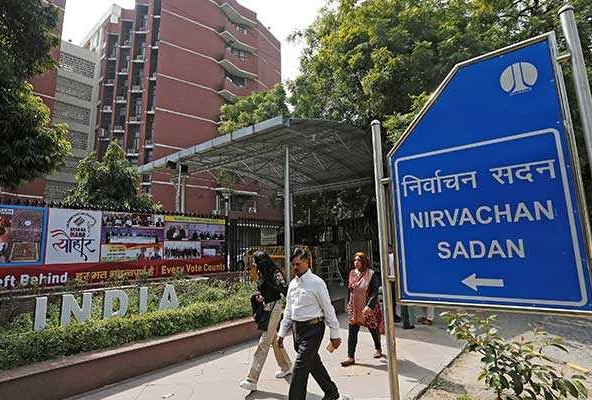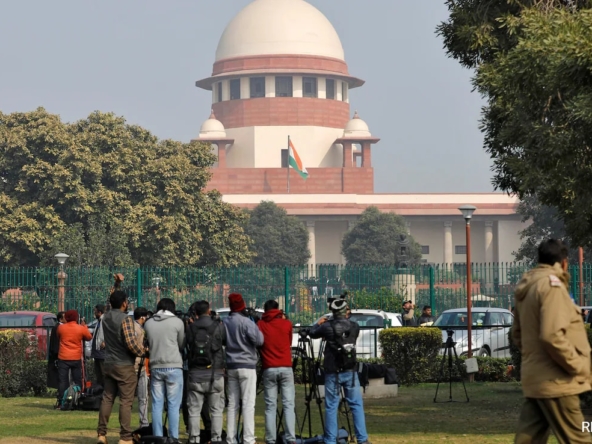
The CAG also found that the project was economically unviable from the beginning.
Hyderabad:
The Comptroller and Auditor General has come out with a damning report on Telangana’s Kaleshwaram project, which says it was economically unviable from the start and details the massive cost overruns, possible undue benefits accrued to contractors and the poor planning involved.
The cost of the Kaleshwaram Project, touted as the world’s largest multi-stage lift irrigation project is now likely to exceed Rs 1.47 lakh crore, as against Rs 81,911 crore projected to the Central Water Commission (CWC), a new report by the Comptroller and Auditor General (CAG) said on Thursday.
The report of the CAG on the performance audit of the flagship project of the previous BRS government was tabled in the legislative assembly.
The CAG also found that the project was economically unviable from the beginning.
The Kaleshwaram project has been mired in controversy, especially after some piers of the Medigadda barrage “sank” last year.
The National Dam Safety Authority (NDSA) found in November that the Medigadda barrage is severely compromised, rendering it useless unless fully renovated.
The damage to the barrage is believed to be one of the major reasons for the defeat of BRS in the recent assembly polls.
The Kaleshwaram Project is an off-shoot of the Dr B R Ambedkar Pranahitha-Chevella Sujala Sravanthi Lift Irrigation Scheme (PCSS Project) formulated by the erstwhile undivided state of Andhra Pradesh.
The executive summary of the CAG report said the Government of Telangana has not accorded administrative approval for the project as a whole and instead it has issued separate approvals — as many as 73 administrative approvals aggregating to Rs 1,10,248.48 crore, and that there are no orders from the government about the funding pattern for the project.
Out of the total expenditure of Rs 86,788.06 crore incurred on the project (March 2022), an expenditure of Rs 55,807.86 crore (64.3 per cent) was met from the off-budget borrowings (OBBs) raised by KIPCL (Kaleshwaram Irrigation Project Corporation Limited), it said.
“The possibility of undue benefit of at least Rs 2,684.73 crore to the contractors for supply and commissioning of pumps, motors etc., cannot be ruled out. Further, post tender inclusion of price adjustment clause resulted in avoidable payment of Rs 1,342.48 crore,” it added.
The Benefit-Cost Ratio (BCR) of the project was inflated; even with the understated project cost of Rs 81,911.01 crore, BCR works out to 0.75. Considering the latest likely project cost (Rs 1,47,427.41 crore), the BCR works out to 0.52, the report further revealed.
“This means that every rupee spent on the project would yield only 52 paise. It clearly indicates that the project was, ab-initio, economically unviable,” it said.
The report stated that the peak energy demand when all the pumps are operated is more than the average daily energy availed in the entire State (2021-22). Providing power to lift irrigation schemes will pose a challenge to the State.
The absence of a comprehensive plan duly spelling out the sources of funds for a project of this scale, which will have a long-term impact on the finances of the State, is an indication of improper planning, it said.
Against targeted new Command Area of 18.26 lakh acres, the works entrusted so far (as on March 2022) included development of distributary network for only 14.83 lakh acres. The actual command area created so far was 40,888 acres only (March 2022), it said.
Noting that the irrigation department showed undue haste in award of works, the report said 17 works costing Rs 25,049.99 crore were awarded even before approval of the Detailed Project Report (DPR).
In the DPR, water for the project was proposed to be lifted from river Godavari at the rate of two TMC per day. The pumping capacity was later increased to three TMC per day involving additional cost of Rs 28,151 crore, it said.
Due to re-engineering of the PCSS (Pranahitha-Chevella Sujala Sravanthi) Project and changes made in the project works, certain portions of works already executed had become redundant, resulting in a loss of Rs 767.78 crore.
Out of the 56 project works, only 12 works were completed, 40 works were ongoing, while four works have not even commenced as of March 2022. Lands required for distributary network, etc., are yet to be fully identified, the report added.
(Except for the headline, this story has not been edited by NDTV staff and is published from a syndicated feed.)




